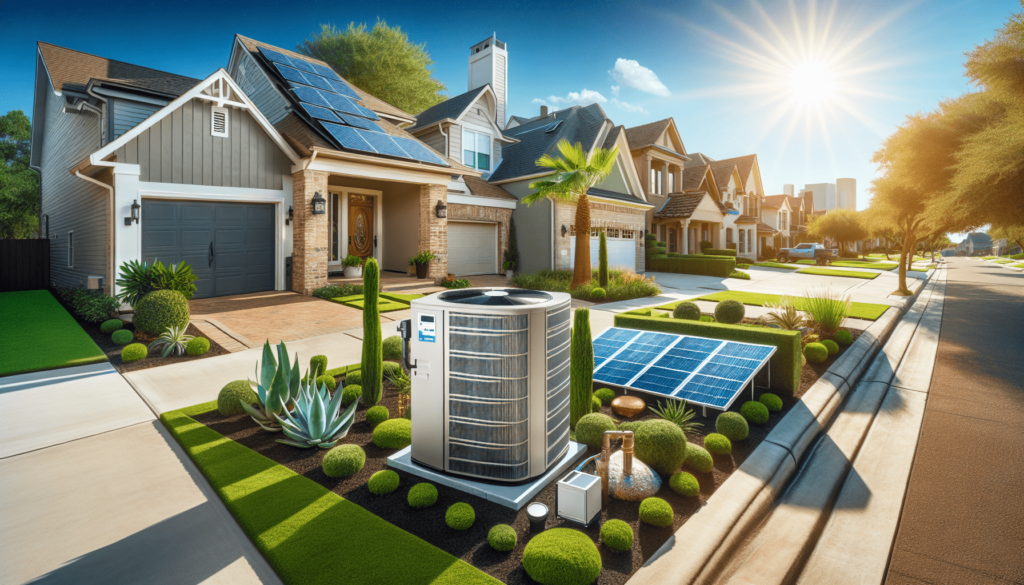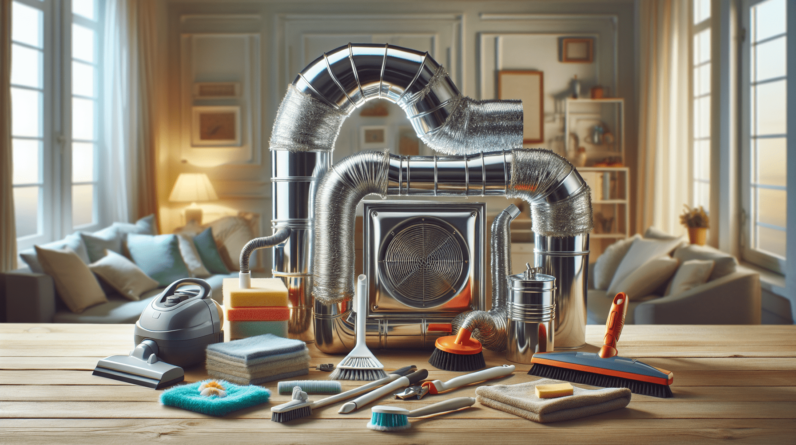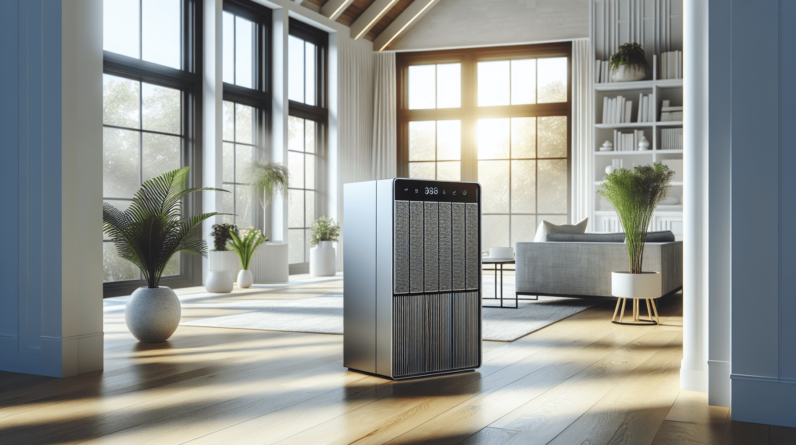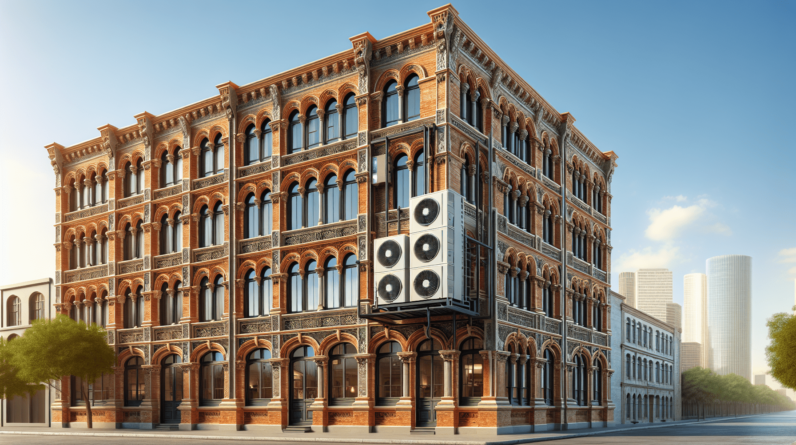
What if you could cut your energy bills without sacrificing comfort in your home? Heating, ventilation, and air conditioning (HVAC) systems are often significant contributors to your energy consumption, especially in places like Houston, TX, where the climate can lead to high operational costs. Understanding how to reduce HVAC energy costs can make a substantial difference in your monthly budget while keeping your living environment cozy year-round.

Understanding HVAC Systems
Before jumping into energy-saving strategies, it’s essential to understand the basics of your HVAC system.
What Is an HVAC System?
Your HVAC system includes the equipment that heats or cools your home, ventilates indoor air, and maintains humidity levels. It typically comprises:
- Heating Unit: This could be a furnace or heat pump.
- Cooling Unit: Often an air conditioner or a chillers.
- Ventilation System: This includes ductwork that circulates air throughout your home.
Knowing how these components work together will help you identify areas where you can improve efficiency and reduce costs.
How HVAC Energy Consumption Affects Your Bills
In Houston, the combination of high humidity and heat can cause your HVAC system to work overtime, leading to elevated energy bills. In fact, HVAC systems can account for 40-50% of your energy consumption. By making conscious changes, you can significantly decrease the strain on your system and lower your bills.
Regular Maintenance
One of the simplest yet most effective measures you can take is to ensure regular maintenance of your HVAC system.
Change Your Filters
Changing your air filters regularly is one of the easiest ways to maintain an efficient HVAC system. A clogged filter restricts airflow, making your system work harder than needed.
Recommendation:
- Check your filters monthly.
- Change them every 1-3 months depending on usage.
Clean the Coils
Dirty evaporator and condenser coils can impair your system’s ability to absorb and disperse heat. This cleaning is often neglected, but it is crucial for maintaining efficiency.
How to Clean:
- Use a soft brush or cloth to remove the dirt.
- Consider hiring a professional for a thorough cleaning once a year.
Schedule Professional Inspections
Having your HVAC inspected by a professional once a year ensures that everything is running smoothly. Technicians can identify and fix minor issues before they become costly repairs.
Improve Insulation
Many people underestimate the role of insulation in HVAC efficiency. Good insulation not only keeps your home comfortable but also reduces the workload on your HVAC system.
Assess Current Insulation
Check the insulation in your attic, walls, and floors. Insufficient insulation can lead to significant heat loss in winter and heat gain in summer, impacting your energy bills.
Upgrade Insulation
If your insulation is thin or outdated, consider upgrading it. Materials like fiberglass or foam can significantly improve your home’s thermal outline.
| Insulation Type | R-Value per Inch | Best Usage |
|---|---|---|
| Fiberglass | 2.9 – 3.7 | Walls & attics |
| Foam Board | 5.0 – 6.5 | Basement |
| Cellulose | 3.1 – 3.7 | Walls, attics |
Seal Ducts
Leaky ducts can be responsible for up to 30% of energy loss in your HVAC system. Insulating and sealing ducts can make a significant difference in efficiency.
How to Seal Ducts:
- Use duct mastic or metal tape to cover leaks.
- Insulate ducts that run through unconditioned spaces.
Use Programmable Thermostats
Using a programmable thermostat allows you to regulate your HVAC system more effectively.
Set Temperature Adjustments
By pre-setting temperature changes based on your schedule, you can avoid heating or cooling empty spaces.
Tips:
- Set temperatures cooler by 5 to 10 degrees during the day when no one is home.
- Program the thermostat to adjust when you are typically asleep.
Consider Smart Thermostats
Smart thermostats go a step further by learning your habits and adjusting accordingly. They can also be controlled remotely through your smartphone, further enhancing your ability to manage energy consumption.
Optimize Your HVAC Settings
Adjusting certain settings on your HVAC system can lead to substantial energy savings.
Adjust Temperature Settings
Setting your thermostat at a higher temperature during the summer and lower during winter can significantly reduce energy consumption. For example, a summer setting of 78°F instead of 72°F can save energy.
Fan Settings
Using the “auto” setting on your fan can save money. The “on” setting keeps the fan running continuously, increasing energy use unnecessarily.
Consider Upgrading Your HVAC System
If your system is old or inefficient, it may be time to consider an upgrade. Modern systems are designed with energy conservation in mind and may qualify for rebates or incentives.
Look for SEER Ratings
The Seasonal Energy Efficiency Ratio (SEER) measures the efficiency of air conditioning units. Look for systems with a SEER rating of 15 or higher for maximum efficiency.
Opt for Energy Star Certified Units
Energy Star certified HVAC units meet strict energy efficiency guidelines. Investing in one of these units can lead to significant savings over time.
Use Ceiling Fans Effectively
Ceiling fans can complement your HVAC system, helping to distribute air more evenly throughout your home.
Seasonal Settings
Make sure your ceiling fans are set to rotate counterclockwise in summer and clockwise in winter. This simple adjustment can enhance comfort and reduce HVAC workload.
Optimize Fan Usage
Using fans and setting your thermostat a couple of degrees higher can allow your HVAC system to work less while maximizing comfort.
Install Window Treatments
Window treatments can significantly affect how much heat enters your home, especially in Houston’s scorching summers.
Use Blinds and Shades
Installing reflective blinds or shades can block heat from infiltrating your space. This will lessen the load on your AC system.
Use Curtains Wisely
Heavy drapes or insulated curtains can be drawn during the hottest parts of the day to keep your home cooler and more comfortable.
Take Advantage of Natural Ventilation
When the weather is pleasant, consider using natural ventilation to reduce dependence on your HVAC system.
Open Windows
In the cooler mornings and evenings, opening windows can help maintain a comfortable temperature without using energy.
Use Exhaust Fans
Running exhaust fans in your kitchen and bathrooms can help remove hot air and moisture, creating a more comfortable living space.
Increase Airflow in Your Home
Sometimes, improving airflow can help your HVAC system run more efficiently.
Clear Vents
Make sure air vents are not blocked by furniture or curtains. Unobstructed airflow can improve HVAC efficiency.
Use Return Vents
Do not block return vents with furniture or other items. These vents are crucial for proper air circulation and can impact system efficiency significantly.
Monitor Your Energy Use
Keep track of your energy consumption to identify patterns and areas where you can improve.
Use Energy Monitor Tools
Several tools can help monitor energy use, allowing you to adjust accordingly. Smart meters and home energy monitors are great options.
Review Monthly Bills
Keep an eye on your monthly bills for patterns. If costs suddenly rise, it could indicate a problem with your HVAC system or that your energy-saving strategies need revisiting.
Conclusion
Reducing HVAC energy costs is not just an exercise in saving money; it’s a way to create a more efficient, sustainable lifestyle. By following the detailed strategies outlined in this article, you can enjoy a comfortable home environment while keeping utility costs in check.
So, take control of your energy consumption today and experience the benefits of a more efficient HVAC system!








